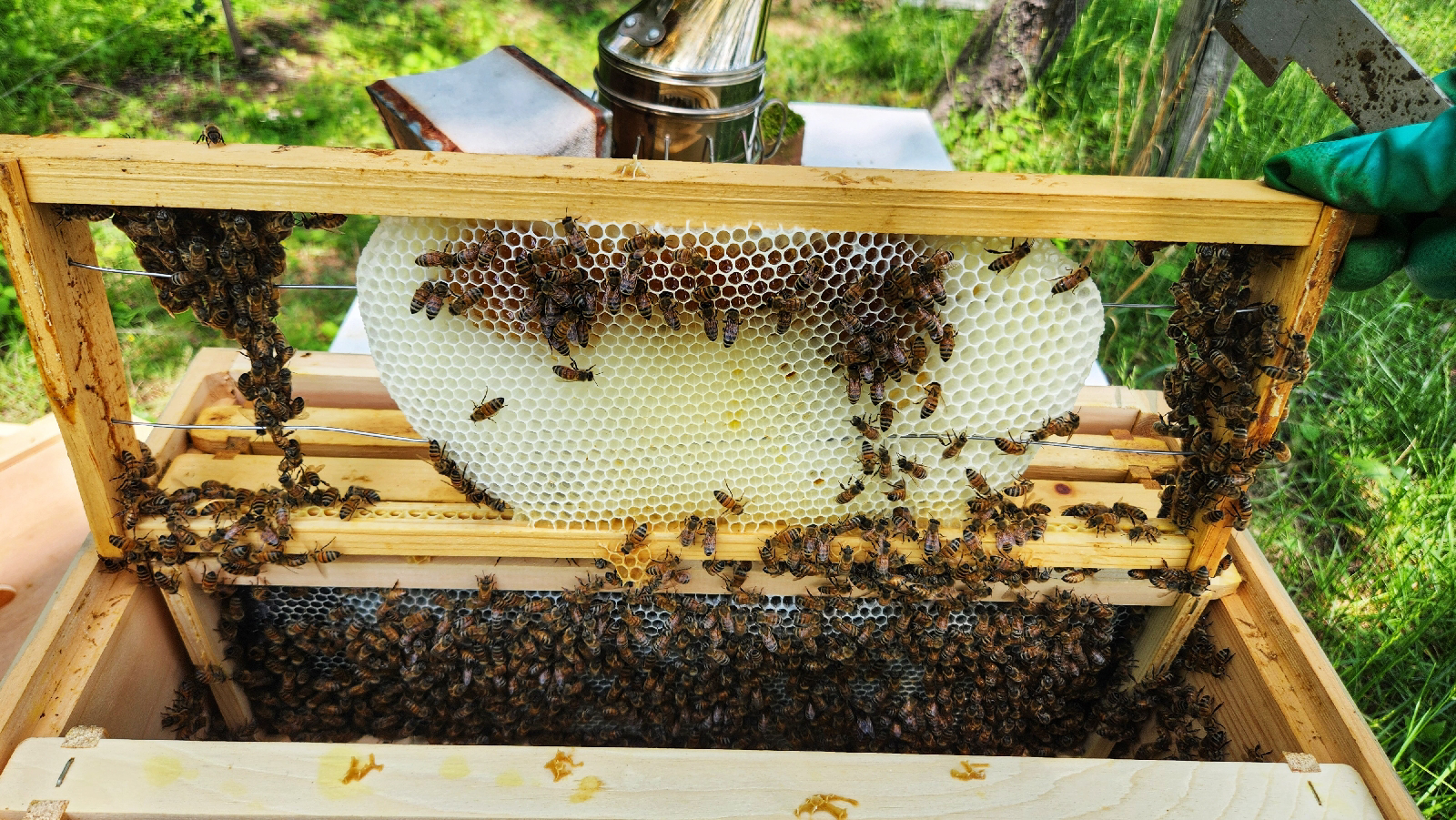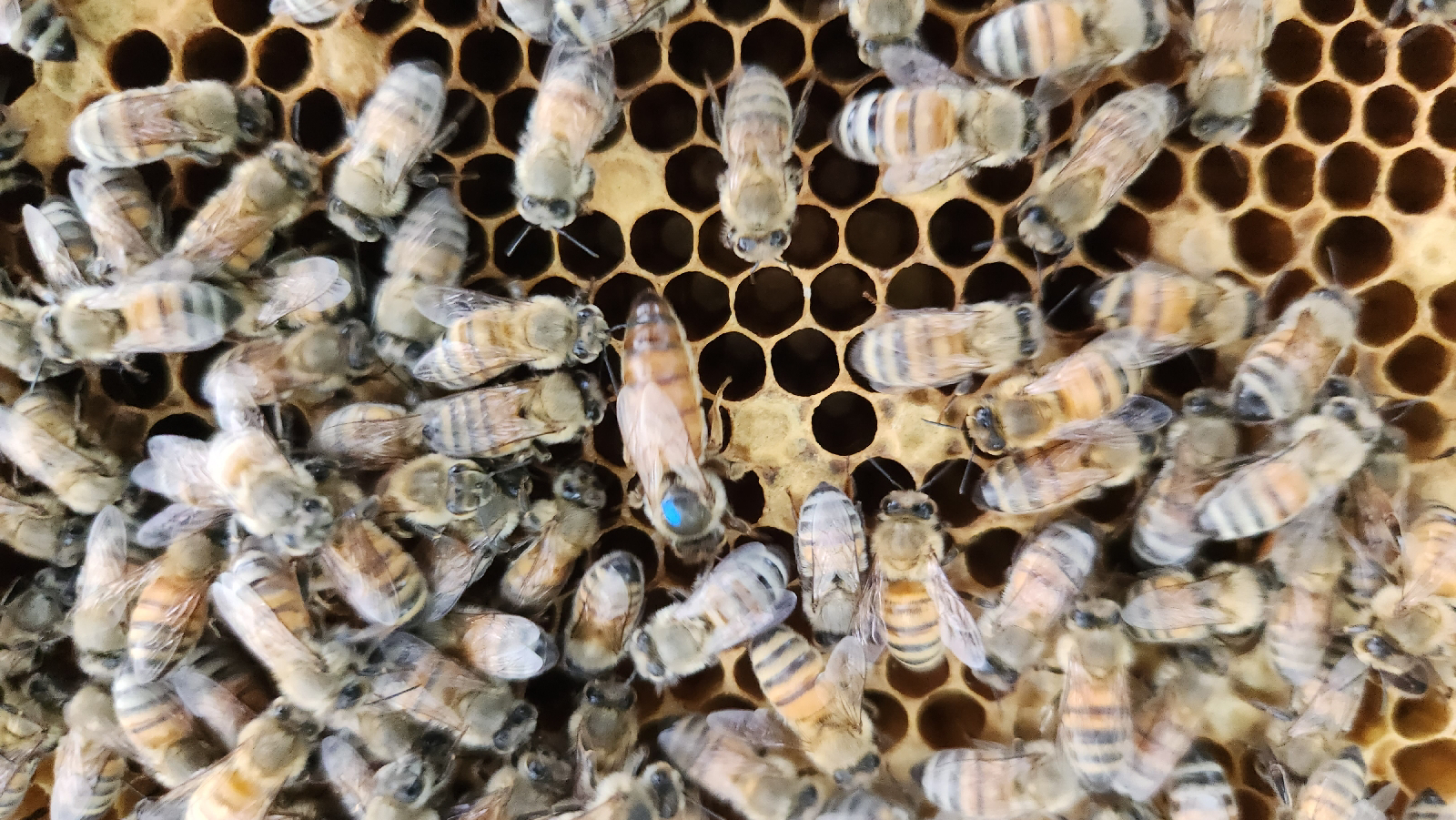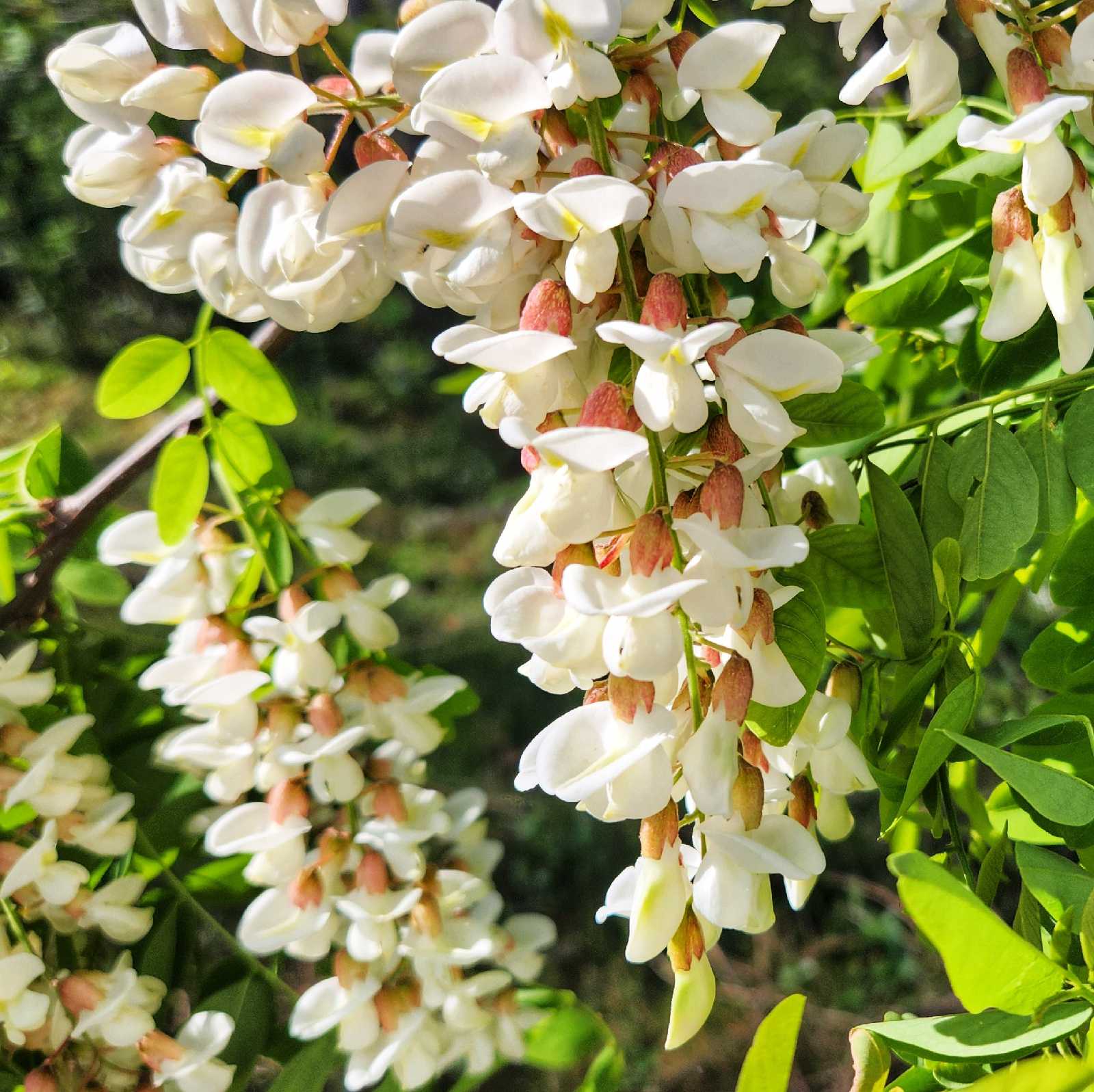Happy World Bee Day!
Today is the day we appreciate those relentlessly busy little workers who pollinate our plants (including many of the foods we eat every day), provide us honey and beeswax candles -- all without asking for anything in return. At least none has so far.
Of course, there's the small issue for some people that honeybees are not native to the U.S. They are, to put it bluntly, an invasive species that competes with native bees for resources. And unlike those native bees -- bumblebees, carpenter bees, mason bees, leaf cutters and the like -- honey bees are not solitary and they don't leave most of the pollen they find in the flower.
Instead, they collect pollen on their back legs and nectar in their secondary stomachs and then make a bee line back to hive where they deposit both for public consumption.
Honeybees are are having a hard time again, however. This year billions of bees have died due to another apparent run of colony collapse disorder. Those are the industrial bees -- the ones who travel the country every spring pollinating almonds, squash, apples, oranges and dozens if not hundreds of other crops.
Here at Thistle Hill, our bees stay put. They forage their little hearts out on our own abundance of fruit trees, locusts, serviceberries, wineberries and loads more wild sources. And they stuff it all away in the honey supers atop their hives.
Since the nectar flow began in April, my bees have been building up quite a supply of honey. I'll probably begin harvesting in early June. I can't wait.






No comments:
Post a Comment